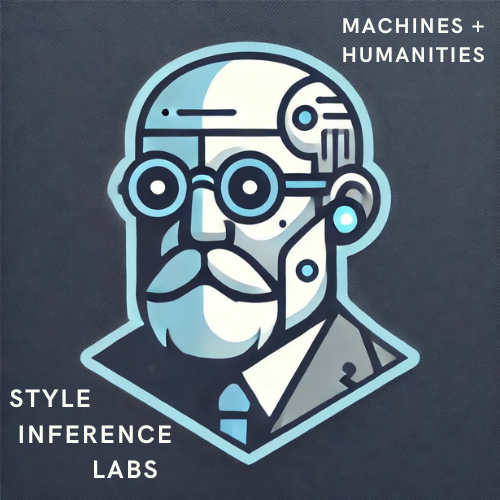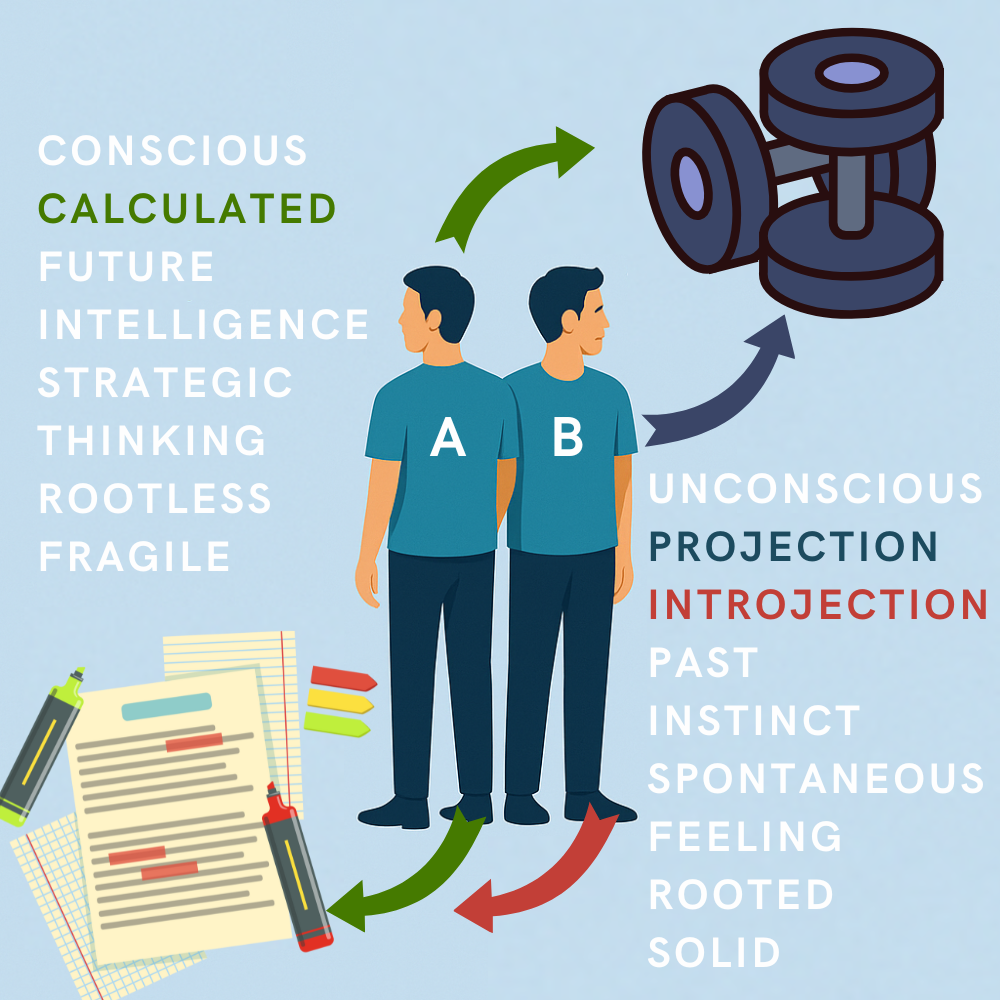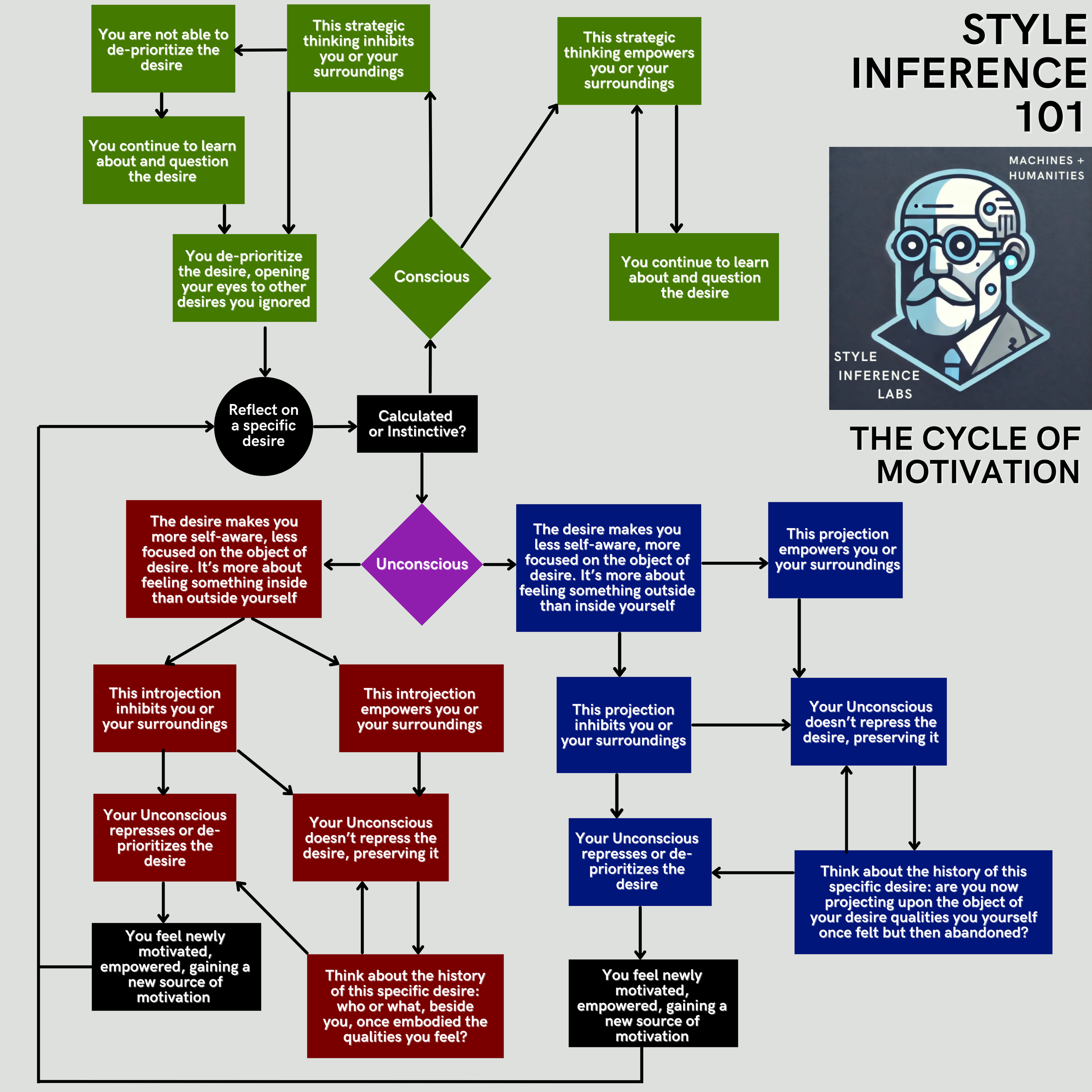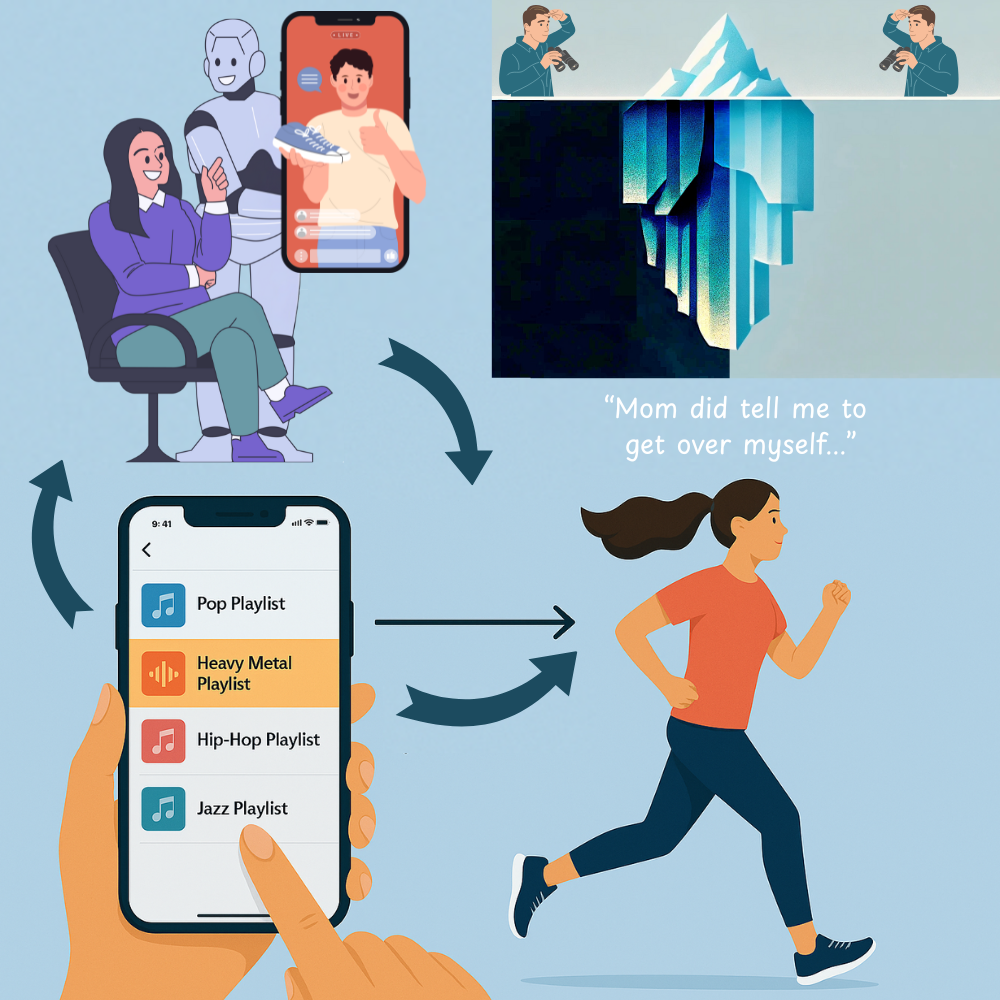Tapping into human instinct for the age of intelligence.
Style Inference Labs is founded on a paradox of the age of AI. Though intelligence helped our quest for happiness as a human species when it liberated us from our instinct - which was repetitive, tunnel vision, unable to look beyond the immediate - happiness can only be instinctively felt, not thought. Intelligence alone cannot bring happiness and it needs its old foe, instinct, to collaborate.
Our work bridges this gap between thinking and feeling, intelligence oriented toward the future and instinct rooted in our past. Why would humans build an efficient technological world if they cannot feel motivated to live in it? Nothing in the world can force a person to feel immediately happy in an activity. This motivation, instinctive and therefore unresponsive to intelligence, has to come on its own.
What people, as intelligent beings, can do to help that process is understand what their instinct perceives as advantageous or dangerous and why it fails to find interest in something new. This knowledge paves the way for instinct to catch up to reality and provide us with the immediate motivation we need to navigate it. We struggle to build new motivation when we don’t complete this cognitive cycle. Two reasons hold us back:
We mistake intelligent motivation, which we muster up to realize a goal, for instinctive motivation, which comes to us without effort.
We hesitate questioning the source of our motivation, fearing that examining why we are driven to something will extinguish that drive.
The opposite is true. Understanding, even disillusionment, do not destroy our instinctive feelings but transform and rewire them. To build new motivation we need the courage to lose it. We are able to form new connections with our surroundings and develop new ambitions, interests, hobbies, idols, pursuits - sources of happiness - when we are ready to understand and maybe abandon what we have outgrown.
Through style inference, a tool from psychoanalysis where intelligence and instinct shake hands, people are equipped to tap into their instinct and complete their cycle of motivation. We offer organizations interactive workshops as introductions to style inference. We also partner with technology companies to design algorithms able to infer our deeper instincts and sensitive to the cycle of motivation - not the vicious cycles that trap users in compulsive loops of repetition, but those that help them grow and develop, moving from motivation to motivation.
Nuancing motivation: intelligent vs instinctive, projective vs introjective
Freud and Lou Andreas-Salomé, the first female psychoanalyst, pointed to two mechanisms through which we are drawn toward something or someone without effort: projection and introjection. Both are instinctive because they emerge from past experiences we naturally outgrew, desires we unconsciously felt compelled to abandon. Something once desirable ceases to be - leaving room for growth and new sources of motivation.
This process of loss tied to a process of creation is detectable when we examine why we project (I instantly give meaning to x) or introject (x instantly gives me meaning) in a particular case. For Freud and Andreas-Salomé, we project without effort desirable qualities upon something or someone when, once upon a time, we couldn’t keep these qualities within ourselves. Likewise, we introject desirable qualities when, sometime ago, we failed to let them exist outside ourselves. New motivation is born on the soil of understanding where old motivation has perished
Consider Person A, who doesn’t feel motivated to study for long hours, nor to work out regularly. Person B, on the other hand, seems to do both effortlessly. According to Freud, Person A’s problem is that they are not projecting nor introjecting: they want to study or hit the gym, sure, but only as an intelligent means to an end, a calculation of future value. This may not be the case for Person B, who enjoys the same activity for its own sake, precisely because it stands for a piece of their individual past.
In the case of introjection, Person B might have had a high school teacher they admired from a distance, only to one day lose that admiration by growing into their shoes and embodying their approach. In the case of projection, Person B might have been used to spending evenings in their rural hometown drawing, not working out, until their new urban life in their adoptive city made them lose their love for a calm environment, a love they outgrew and for which their instinct found a substitute.
The cycle of motivation: seven steps
1. Identify a specific desire. Choose something you feel drawn to or motivated about. It can be a career goal you are pursuing, a hobby you like, a person you look up to or find attractive. It can be a guilty pleasure you don’t understand or an established taste you are open and proud about.
2. Measure effort. Ask yourself: does this desire feel calculated or instinctive? On one hand, desires can be conscious, part of a larger plan, goal, or strategy. On the other hand, desires can be unconscious, what we like without much thought or effort.
3. Gauge the axis. In the case of instinctive desires, ask yourself: am I giving something meaning or is it giving me meaning? The first is projection, an escape from ourselves toward something we perceive more lovable and important. The second is introjection, a return to ourselves, feeling loved or important.
4. Assess consequence. Ask yourself: is this desire inhibiting or empowering you or others? Reflect on (and ideally research) the ethical and pragmatic dimensions of this desire.
5. Trace origin. Dig into your past. Connect your present motivation with its buried predecessors, similar desires you outgrew and abandoned along the way. At first, they may appear unconnected to the motivation you’re reflecting on, but you will eventually see the link.
6. Experience disillusionment. A genuine understanding will allow you to move on from inhibiting desires and maintain empowering ones. Once you reach this stage, your survival instinct re-organizes itself without your conscious input, taking into account the new facts you have uncovered and re-prioritizing what you should instantly desire.
7. Wait. In due course, you will feel newly motivated. About what? You can’t predict it: you can only feel it. But on that day, you will recognize where it came from. It will have been you who watered the soil in which you saw grew a new motivation, a new reason to get out of bed, a new way to feel immediately alive.
Algorithms of Oppression Empowerment
The idea that algorithms trap users in vicious cycles and isolated bubbles - by marketing content similar to past clicks - has been well documented. How many more pairs of sneakers can one want? Algorithms equipped with style inference would try to infer not only what users want but how they typically want something - projectively or introjectively.
The distinction matters at a personal and commercial level. Imagine a person for whom listening to heavy metal music is projective. They’ve been trying to get over themselves and pop music was a constant reminder of me, me, me culture. Imagine now an algorithm proposes this same person a chance to ‘win a selfie’ with their favourite artist. This way of framing the message will be a turn off for our particular listener. For Freud, they will end up unconsciously feeling conflicted - and the company that sponsored this conflict between what we want and how we want it will not be getting its prized clicks.
There is a price we all pay when we ignore the deeper instincts behind the intelligence choices we make. The iceberg metaphor for what Freud called the Unconscious still stands. Two identical human behaviours can have opposite motivations like projection and introjection. We can choose to ignore these deeper differences in people. Or we can begin to see the bigger picture.
Ready to build motivation?
Fill the form below or get in touch with us via contact [at] styleinferencelabs.com



